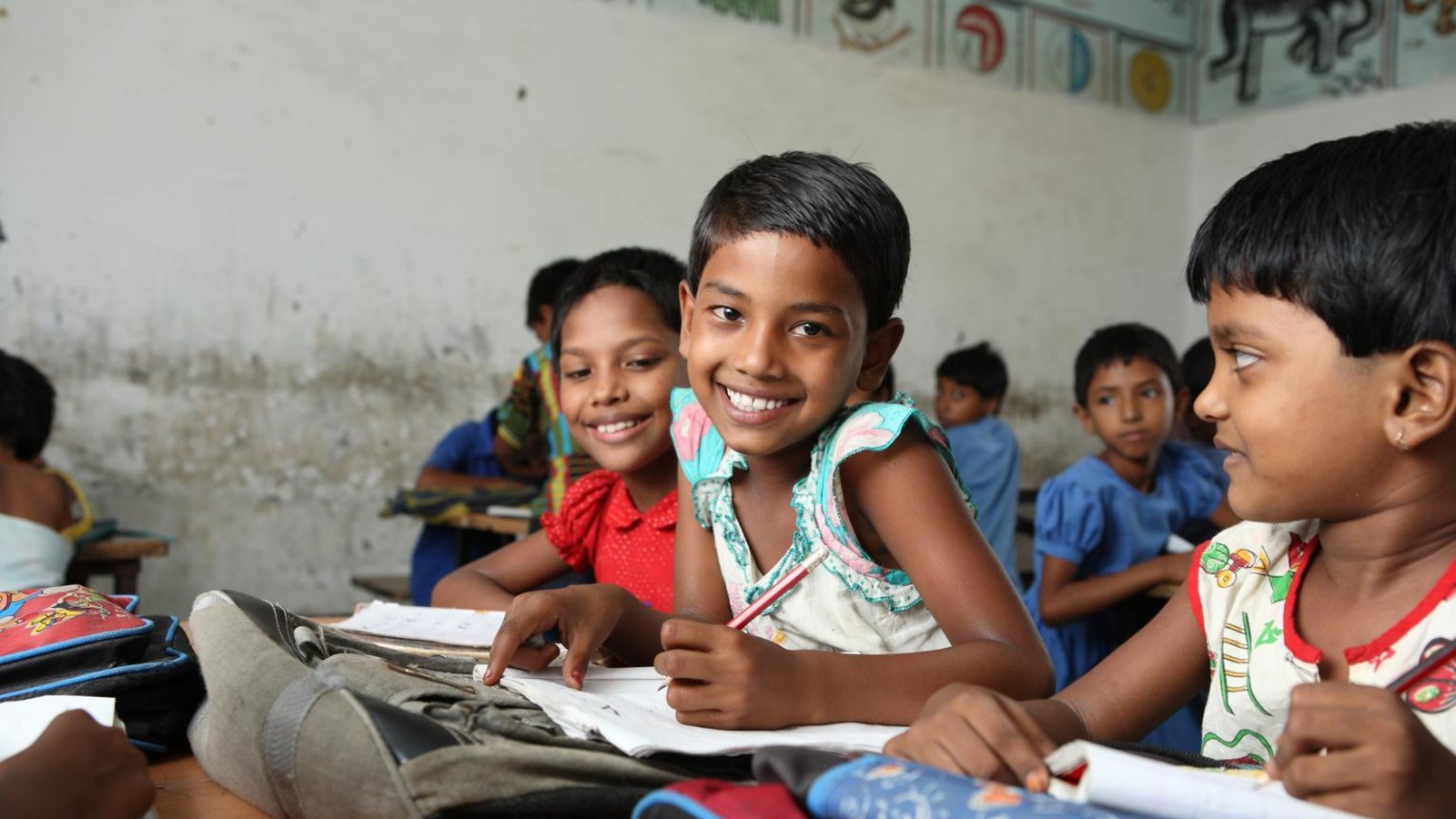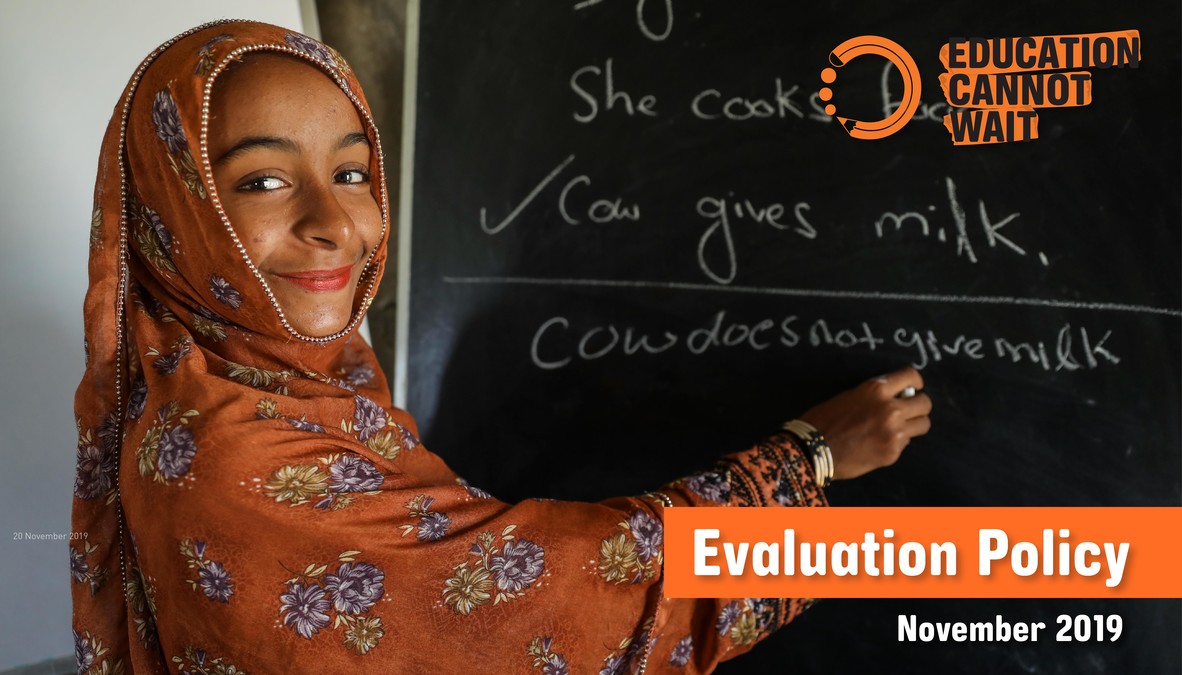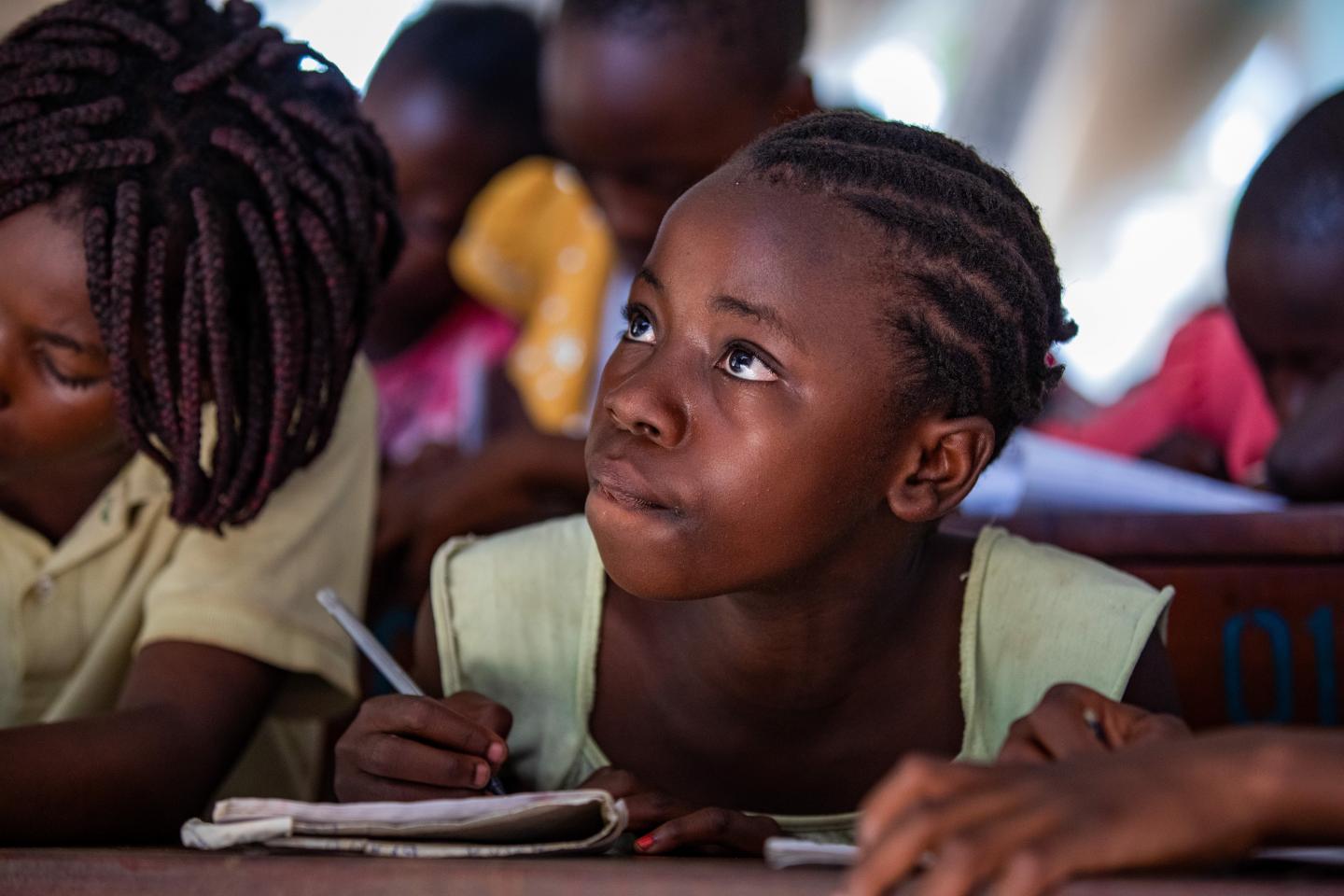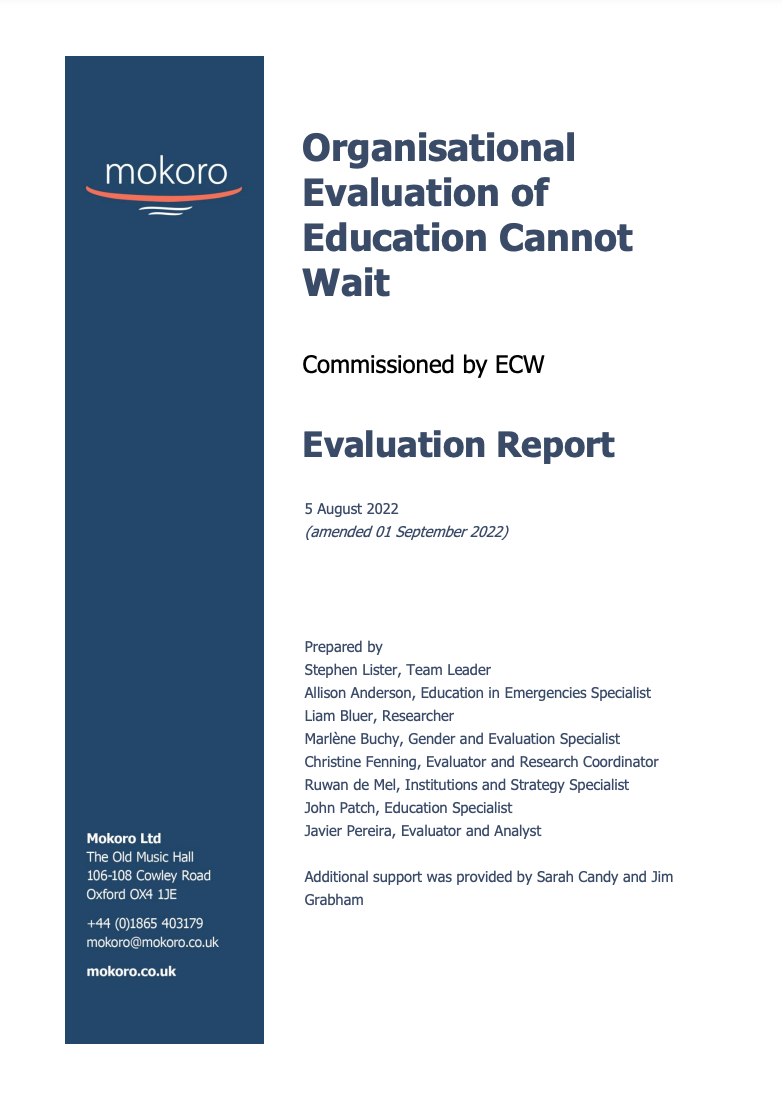As a breakthrough fund created to transform the delivery of education in emergencies and protracted crises, evaluation is at the core of ECW's work to improve efficiency and accountability.
ECW’s approach to evaluation is defined in the ECW Evaluation Policy, which describes the purposes, scope, methodologies, steps and timelines, deliverables, as well as roles and responsibilities during ECW-commissioned evaluations. Evaluations directly contribute to the Fund’s strategic objective number 5, which states that ECW “improves accountability by developing and sharing knowledge, including collection of more robust data to make better-informed investment decisions, and knowledge of what works and does not.” The evaluations, as part of ECW’s Policy, directly feed into this objective both by being accountable towards ECW’s planned results as well as by contributing to the global knowledge-base around measurement towards development results in education in emergencies and protracted crises settings.
ECW follows the UNEG definition, norms and standards on evaluation. UNEG Norms and Standards for Evaluation defines evaluation as “an assessment, conducted as systematically and impartially as possible, of an activity, project, programme, strategy, policy, topic, theme, sector, operational area or institutional performance. It analyses the level of achievement of both expected and unexpected results by examining the results chain, processes, contextual factors and causality using appropriate criteria such as relevance, effectiveness, efficiency, impact and sustainability. An evaluation should provide credible, useful evidence-based information that enables the timely incorporation of its findings, recommendations and lessons into the decision-making processes of organizations and stakeholders.”
ECW Evaluations
ECW commissions four types of evaluations:
The analysis framework of ECW’s evaluations are guided by a set of globally accepted evaluation criteria of OECD-DAC – as well as commonly used humanitarian evaluation criteria, including those relevant to the Grand Bargain agreement.
In addition, gender equality, Grand Bargain and human rights dimensions are integrated into all evaluation criteria (as appropriate) and/or criteria derived directly from human rights principles are used (e.g. equality, participation, localization, social transformation, inclusiveness, empowerment, etc.)





